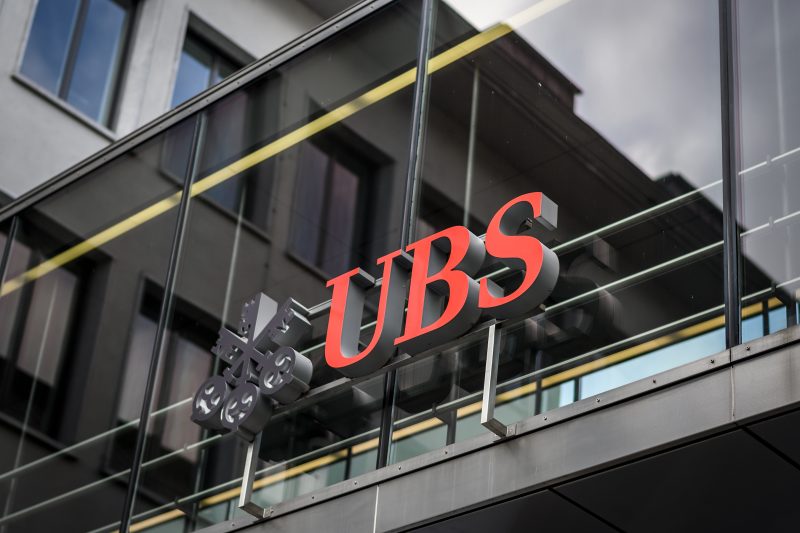France fines UBS bank record 3.7 bn euros in tax fraud case
In the UBS case French authorities determined that more than 10 billion euros had been kept from the eyes of tax officials between 2004 and 2012 (Fabrice COFFRINI)
Paris (AFP) – A Paris court on Wednesday fined Swiss banking giant UBS 3.7 billion euros ($4.2 billion) for encouraging customers to commit tax fraud, a record in France where public opinion has grown vocal for crackdowns on tax dodging.
Lawyers for the bank, which was convicted of illegally soliciting rich clients abroad and helping them to hide billions from French tax authorities, said they would appeal the landmark ruling.
Court president Christine Mee said the bank was guilty of “exceptionally serious” misdeeds “whose origins are to be found in a structured, systemic and age-old organisation”.
UBS, the world’s largest private bank, had tried to negotiate a settlement to avoid the potentially embarrassing court showdown, but failed to agree on a fine with prosecutors.
As well as the landmark fine for UBS, the bank’s French subsidiary was fined 15 million euros for complicity.
And the court also awarded the French state, itself a plaintiff in the case, 800 million euros in damages, half the 1.6 billion sought by prosecutors.
The decision came as authorities across Europe have cracked down on tax evasion and dubious banking practices in the wake of the 2008 global financial crisis.
The trial opened last autumn after seven years of investigations, launched when former employees came forward with claims of unlawful conduct.
A series of leaks and investigations — Luxleaks in 2014, the Panama Papers in 2016, and the Paradise Papers in 2017 — have helped shed light on tax fraud by international corporations as well as world celebrities.
Pressure eventually forced Switzerland to effectively end its tradition of ironclad bank secrecy, joining more than 90 countries which agreed to automatically share more client account information with each other.
– UBS ‘perfectly aware’ of law breaking –
In the UBS case, French authorities determined that more than 10 billion euros had been kept from the eyes of their tax officials between 2004 and 2012.
The National Financial Prosecutor’s office has said the bank and its directors “were perfectly aware that they were breaking French law” by soliciting clients and helping them evade French taxes.
Five of six former UBS top officials received suspended prison sentences and individual fines of up to 300,000 euros.
Only one defendant, Raoul Weil, a former number three at UBS, was found not guilty because he did not have any direct dealing with the French market.
UBS, which had been ordered to post 1.1 billion euros in bail, has denied the charges and said its operations complied with Swiss law.
It also says it was “unaware” that some French clients had failed to declare assets in Switzerland, and that prosecutors have not produced any proof, such as client names or account numbers, to back up their fraud claims.
– ‘Milk tickets’ –
UBS was accused of organising or inviting prospective clients to prestigious outings such as the French Open or luxury hunting retreats, where bankers would meet their “prospects” — something they were not allowed to do under French law.
UBS France directors then used notes called “milk tickets” to keep track of how many “milk cans” — amounts of money — were transferred to Swiss accounts.
Only one “milk ticket” was found during the inquiry, but prosecutors pointed to the roughly 3,700 French UBS clients who took advantage of an amnesty to regularise their tax declarations with the French authorities.
Former French Finance Minister Michel Sapin welcomed Wednesday’s court ruling, saying the size of the fine “takes into account the evolution of mentalities and international standards”.
“Until now one spoke of how banks were fined billions in the United States, but only a few million in France”, which has harmed France’s credibility in fighting fraud, Sapin said.
Tax fraud is a hot issue in France, where former budget minister Jerome Cahuzac, whose brief in government was to crack down on tax dodgers, was sentenced in 2018 to three years in jail for tax fraud and money laundering.
UBS has been embroiled in a series of similar cases, most notably in the United States, where authorities said the bank used Switzerland’s banking secrecy laws to help rich clients avoid taxes.
In 2009 it paid $780 million to settle charges it helped thousands of American citizens hide money from the Internal Revenue Service.
The bank agreed to turn over information on hundreds of clients, severely denting Switzerland’s long tradition of shielding banking clients and their operations.
Disclaimer: This story is published from a syndicated feed. Siliconeer does not assume any liability for the above story. Validity of the above story is for 7 Days from original date of publishing. Content copyright AFP.


